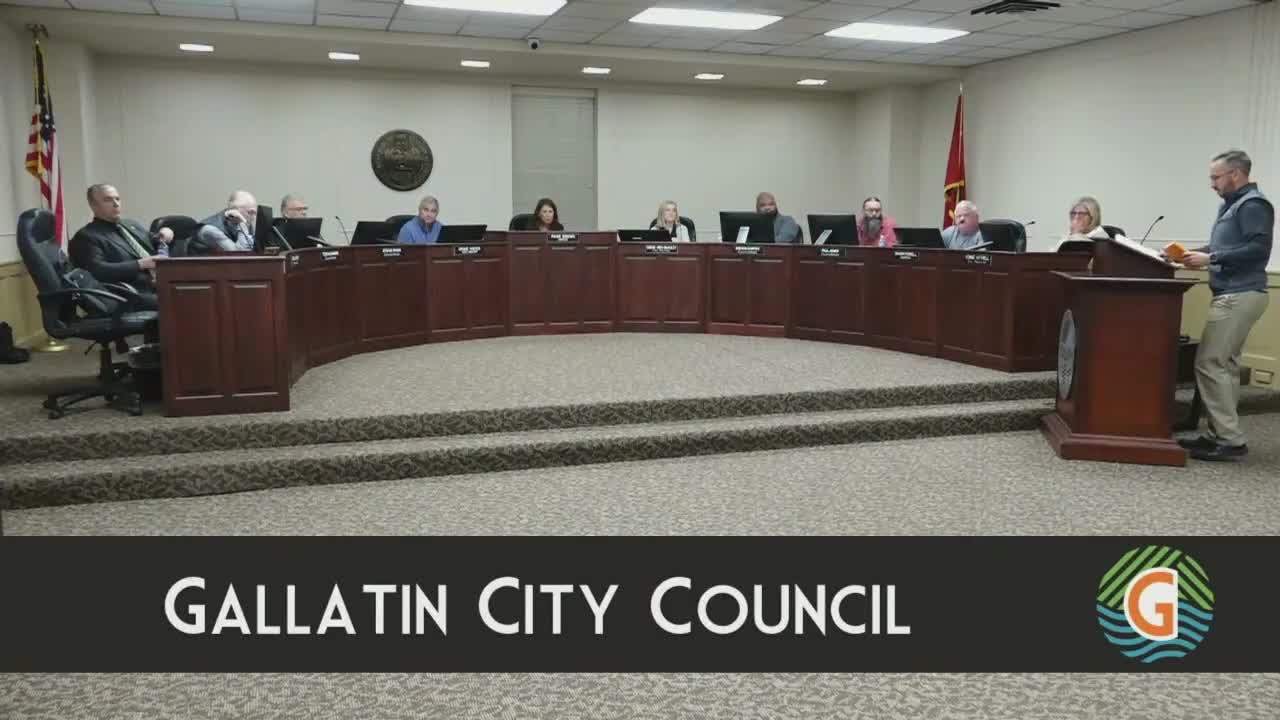Gallatin council pauses condemnation option after heated debate over stormwater fix for American Legion veterans home
Get AI-powered insights, summaries, and transcripts
Subscribe
Summary
Council heard residents and American Legion representatives urge a stormwater fix for flood-prone veterans residence. The city said a county ARPA grant of $500,000 required a public-right-of-way design that would remove part of Woods Ferry Road; council voted to take condemnation off the table and set a special work session to pursue alternatives.
The Gallatin City Council Committee spent an extended portion of its Oct. 28 work session debating a stormwater project tied to the American Legion Veterans Home and whether city action should include pursuing condemnation of a narrow parcel of church-owned land to create a public right of way.
Members of the public, including representatives of the American Legion and nearby church leaders, urged the council to resolve chronic flooding at the veterans residence. Greg Johnson and Curtis Malone of American Legion Post 17 said the home has experienced repeated flooding and that a detention-pond-based solution had been discussed with city engineers and the church for years. Church representatives and nearby residents told the committee they preferred a non-condemnation solution and said they had previously offered an easement of about 35 feet to address the drainage problem.
City engineer Nick Tuttle (presented as McTurtle in the transcript) outlined the technical history and options. Tuttle said Sumner County had offered $500,000 in ARPA funds to address the stormwater and a related skewed intersection at Woods Ferry and South Water. The county money created an opportunity to design a combined traffic-streetscape-and-stormwater solution that would expand a city-owned detention pond — but doing so, Tuttle said, required removing a short segment of Woods Ferry and acquiring roughly 0.3 acres on the south end of the Liberty Baptist Church property to extend Hale Avenue and provide space for new stormwater piping and the expanded pond.
Tuttle told the committee the city’s preferred design created a clear public purpose: correcting a hazardous skewed intersection while placing stormwater facilities on city-owned detention area rather than shifting runoff deeper into adjacent neighborhoods. He said the city had appraised the right-of-way at roughly $133,000 and that the proposed work would avoid private funding needs by leveraging the county ARPA funds. He also cautioned that the ARPA funds had a federal deadline and were effectively obligated by a signed agreement; if Gallatin did not move forward the funds could be forfeited.
The proposal prompted sharp pushback from church representatives and some councilmembers, who said there had been prior agreements and that a less intrusive plan — a pond expansion on the parcel previously discussed with the Legion and church — might achieve the same stormwater mitigation without removing Woods Ferry. Council members and staff debated whether the county had envisioned a road as part of its funding. Tuttle said the county had offered money but had not developed a separate plan; the city’s design combined traffic correction and stormwater work.
After extended back-and-forth, the committee voted to remove the condemnation option from consideration “for this project” and directed staff to pursue further discussions exploring alternatives. Council also approved a special-called work session for Nov. 18 at 5:00 p.m. to dig into the options and legal questions, and to advise county staff about the city’s next steps so ARPA funding could remain available while alternatives are studied. The committee also voted to suspend any immediate condemnation action — a motion the council clarified did not forever prohibit future councils from considering condemnation on the same site.
Why it matters: The Veterans Home houses vulnerable residents and has long been cited for flooding and structural risk from water intrusion. The county’s $500,000 ARPA offer creates a short window to use outside funds for a public solution, but the city must balance that with private-property rights and the legal limits on spending public money on private land. The Nov. 18 special work session will determine whether a negotiated easement, refined design, or another procurement path can capture the county funding while avoiding condemnation.
What happens next: City staff will pursue negotiations with the church and the American Legion, prepare additional engineering options that do not require condemnation where possible, and bring more detailed cost and schedule information to the Nov. 18 special-called session. If no acceptable alternative is agreed, the county’s timeline may force a decision about whether to obligate ARPA funds under the city’s proposed plan.
